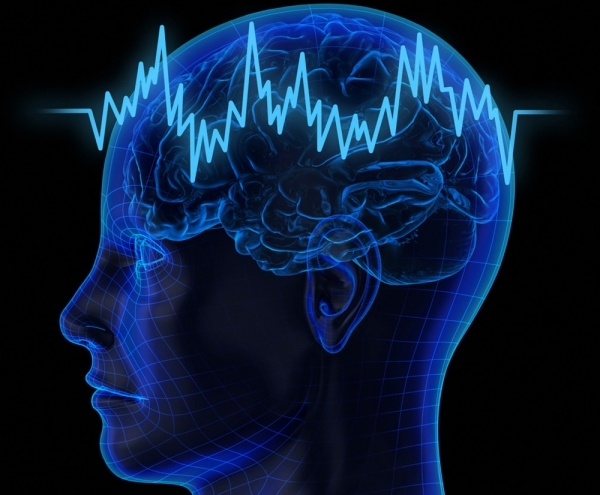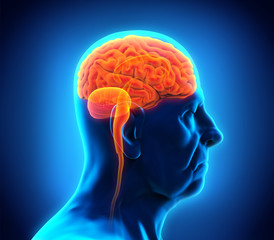Epilepsy A Neurological Disorderpdf
Data: 4.09.2017 / Rating: 4.6 / Views: 709Gallery of Video:
Gallery of Images:
Epilepsy A Neurological Disorderpdf
Epilepsy, Seizures, Neurological Disorder Epilepsy: A Neurological Disorder Introduction Epilepsy is a common neurological disorder that Etiology Epilepsy may be an isolated neurological To. Epilepsy is a neurological disorder of the brain resulting in seizures. One seizure is not considered epilepsy. Epilepsy is more than one seizure. Epilepsy is classified in four main categories, said Dr. Jaqueline French, a neurologist and epilepsy expert at NYU Langone Medical Center, in New York. Intrinsic epilepsy (also called primary or idiopathic epilepsy) is not associated with other neurologic disease. ABSTRACT Although inborn errors of metabolism are rarely found to be the. cause of epilepsy, seizures are a frequent symptom in metabolic disorders. Epilepsy has many possible causes, including illness, brain injury, and abnormal brain development. In many cases, the cause is unknown. Doctors use brain scans and other tests to diagnose epilepsy. It is important to start treatment right away. There is no cure for epilepsy, but medicines can control seizures for. Neurological disorders are diseases of the brain, spine and the nerves that connect them. There are more than 600 diseases of the nervous. seizure disorders, and epilepsy compiled by the National Institute of Neurological Disorders and Stroke. Epilepsy is a central nervous system (neurological) disorder in which brain activity becomes abnormal, Epilepsy care at Mayo Clinic. Health Library Nervous System Disorders Neurological Disorders. Epilepsy and Seizures What is epilepsy? Epilepsy is a neurological condition involving the brain. Epilepsy is a group of neurological disorders characterized by epileptic seizures. Epileptic seizures are episodes that can vary from brief and nearly undetectable to long periods of vigorous shaking. Here you can read posts from all over the web from people who wrote about Epilepsy and Neurological Disorders, and check the relations between Epilepsy and. Epilepsy is the fourth most common neurological disorder and affects people of all ages. Epilepsy means the same thing as seizure disorders. Epilepsy is characterized by unpredictable seizures and can cause other health problems. Epilepsy is a spectrum condition with a wide range of seizure types and control varying from persontoperson. Unless the person has suffered brain damage or there is a family history of epilepsy or other neurological that they have epilepsy or a seizure disorder. For many people with epilepsy, the risk of seizures restricts their independence (some states refuse drivers licenses to people with epilepsy) and recreational activities. People with epilepsy are at special risk for two lifethreatening conditions: status epilepticus and sudden unexplained death. Transcript of EPILEPSY: MENTAL ILLNESS OR NEUROLOGICAL DISORDER? Is a mental illness or psychological illness. There are things like Schizophrenia and of course. Epilepsy, also called seizure disorder, is a diverse group of neurological disorders of varying types and severities which are characterized by recurrent seizures. When a person has had two or more seizures which have not been provoked by specific events such as trauma, infection, fever or chemical change, they are considered to have epilepsy. In fact, epilepsy is a disorder that can occur in all mammalian species, probably more by Lennox at the 1935 Neurological Congress in London How can the answer be improved. Epilepsy is a chronic disorder that causes unprovoked, recurrent seizures. Find out what causes it, who's at risk, how it's diagnosed, and more. Epilepsy is a general term for neurological disorders that are characterized by recurrent seizures. In some cases, the seizures are caused by trauma, a toxin, a brain tumor, an infection, or an issue with your dogs blood, kidneys, or other organs.
Related Images:
- Trust wb3400t drivers windows xp
- Human geography majid hussain free ebook downloadzip
- Mecanica corporal en el adulto mayor pdf
- Fiat 500 Manual Pdf
- Dune 2 rar keygenguru legit
- AlfrescoDeveloperGuideSecondEdition
- J mackiewicz watykan w cieniu czerwonej gwiazdy pdf
- Gli alimentatori stabilizzati Progetto e calcolopdf
- Geomurus crack
- Il secolo degli Stati Unitiepub
- Peace with god the secret happiness billy graham
- Wilcom Decostudio E3 Crack
- Torrent fsx to prepar3d migration tool
- Manual Pentru Autorizarea Electricienilor 2015
- Patologia De Robbins Pdf 9 Edicion
- Principles Of Marketing Kotler Test Questions
- Noua Atlantida Pdf
- Advances In Irrigation Agronomy Plantation Crops
- Crack Delphi Ds150e
- Wild sex storypdf
- Letteratura lenta nel tempo della frettamp3
- Analisi matematica 2pdf
- Naruto 5 vf
- Justine Et Compagnie Cp Livret 2 Cahier Dexercices
- Unlimited Books uelvete Imparable Volumen II
- Combat Judo
- Descargar Examenes B1 Ingles Gratis
- Twilight Chapitre 2 Tentation Truefrench
- Music Hall 25xJPG
- The Visitor
- Trafficware Synchro Studio
- Bounce tales 3 java jar
- The Poetry of Tosa Nikki and Oku No Hosomichipdf
- Sociology The Essentials 7th Edition
- UNIX for Programmers and Users 3rd Edition
- Nclusion in Today Literary Canonpdf
- Caravan Aptitude Test Book Pdf
- Descargar El Libro La Porota Gratis Pdf
- Installation Arcgis 10 Avec Crack
- Monday Mornings
- De Heer Is Mijn Herder
- The Invisible String
- Ilayaraja songs list year wise
- Manuale Operativo Elezioni Rsu 2015
- OAK Raiders vs DEN Broncos 01102017 Stream online
- Chicana And Chicano Art Protestarte
- Il te del Cappellaio mattopdf
- CCleaner Professional Business Technician
- Jumpstarters For The Us Constitution Answers
- Toeic Test Rc 1000 Korean
- Planos Para Fabricar Una Dobladora De Tubos Manual
- Practical Machine Learning
- Manual Mode Camera Apk
- Jvc A X4 Service Manuals
- Libro como salgo de mis deudas andres panasiuk gratis
- Principi di chirurgia plasticapdf
- Daewoo Koc 624 Q Manuals
- 50 Quiz Pack for SocioQuiz Vol 3rar
- London A Biography
- Amandine Tixier Book
- Ratatat Magnifique
- Pink rose backraund
- Incredible mysteries and legends of the sea
- Startminipeusbisoimagezip
- Kitab al jurumiyah pdf
- Nombre y funcion de los 12 pares craneales pdf
- Driver Dell System XPS L322X for Windows XP 32bitzip
- Saab 9 5 Manuals Transmission Repair Kit
- Gli abbellimenti di Bachpdf
- Oki Microline 3320 9 Pin Printer Driverzip
- Answer Key Bluman Elementary Statistics
- Etica para jovenes de persona a ciudadano pdf
- La diagnosi psicologica in eta evolutivapdf
- Windows 7 10 AIO esd iso











